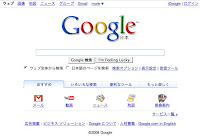Localisation: Operate globally, think locally!
 Just because your website has had great success in your domestic market, it does not guarantee the same success internationally!
Just because your website has had great success in your domestic market, it does not guarantee the same success internationally! At the beginning of the computing era, programs were written only in English, the problem being that at this time only people who spoke English as their mother tongue, or who had studied the language to a high degree at school could access these resources. Therefore millions of potentially lucrative customers were lost as they could not understand the programs.
If you are looking to enter international markets it is crucial to translate your website into the language of your target market. A product or service on your website will appear much more attractive if it is presented in the language of your target customer, whilst also allowing you to compete with locally produced products or services. Research has shown that web contact time is doubled on sites which have been correctly translated. But it is not all about language, knowledge of the cultural and business norms is necessary for successful localisation and international marketing.
Problems can occur with the design of internet forms designed to gather data from customers. In the English speaking world there is often no field on such forms for academic titles such as Professor or Doctor, but research shows that customers from European countries such as Germany and Italy respond more to direct e-marketing when they are addressed as Professor or Dr....
Another common problem with international internet forms is the postal code field, as postal codes come in various forms in different countries. The American field “State” also causes problems in Europe, as many countries are not split up into states. There have also been cases, where in order to proceed with an order the customer has to choose a state from a predetermined list! Confusing or unclear fields in an online form not only irritate the customer but they can also lead to inaccurate or incorrect information, meaning that the entire reason for the form is invalid.
The internet offers a great advantage in that you can go and check out how local competitors construct their sites before implementing any changes to your own, so get researching.......
Read more...
